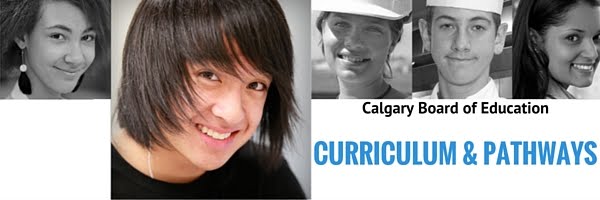Natalie McLeod and Mike McKillop
Our original idea centered around DIY biology and synthetic biology. Similar to the maker space that we visited, there are similar spaces in some cities focused on synthetic biology. We wanted the students to research the ideas around synthetic biology and DIY biology and then write their own proposals.
The project allowed teachers
to let the students explore a very interesting but diverse topic on their own
and allow them to focus on their interest. Teachers are unable to keep up with
all the rapid developments in field of synthetic biology and this project
allowed the students do some of the legwork. We learned a lot from their
projects.
For the students, the
projects allowed them to develop a number of skills and dispositions that they
will be able to further develop in their academic careers. Their understanding
of synthetic biology was vastly improved – the general idea of it but for some
groups also to a very high level of technical expertise. They saw opportunities
for future research as well.
Some of
the most highlighted student findings were:
· Time management – a project spread out over 4 months
and 2 semesters challenged them but also provided opportunities. They really
appreciated the small deadlines along the way
· How difficult creative can be. For many, coming up
with initial topic was tough.
· Learning how to be critical of online materials. Most
eventually found academic journals and resources to be most valuable
· Teamwork
· Many used Google docs for the first time and found it
very powerful
· Using APA referencing style. Most hated it at first
but found it easy to work with after the initial learning curve. They saw the
value in it.
· Having to pitch their project in 5 minutes. Distilling
4 months of work into 5 minutes was challenging but useful. They enjoyed the
business aspect of the project as they were competing for funding.
The project stimulated a number of conversations
ranging from the nature of scientific inquiry and original research to ethics
and environmental issues. These conversations not only occurred in class but
also between students as they were working on their projects.
A few weeks after the completion of this project, we
observed an unexpected positive outcome of this type of inquiry. During a field
study, students were required to develop their own thesis for a snow ecology
study and then investigate it with very little preamble. This year, students
seemed more at ease with this process than in previous years.
Having students apply the
design process to a project in synthetic biology really had them thinking about
the nature of science. It was no longer about the content, the students had to
be creative and problem solve using their own knowledge and then search for
reputable sources to help them further develop their ideas. Working in teams,
they not only worked through technical aspects of synthetic biology but also
explored how it could be used to solve environmental or health issues. Topics
for the projects ranged from estrogen biosensors, biofuels and disease detection
to bioremediation and the breakdown of plastics in the environment.
Students had the time to
think deeply about a topic, develop their ideas and learn from their failures.
Many for the first time, had to access scientific journals and evaluate current
research in a field that they were learning about.

No comments:
Post a Comment